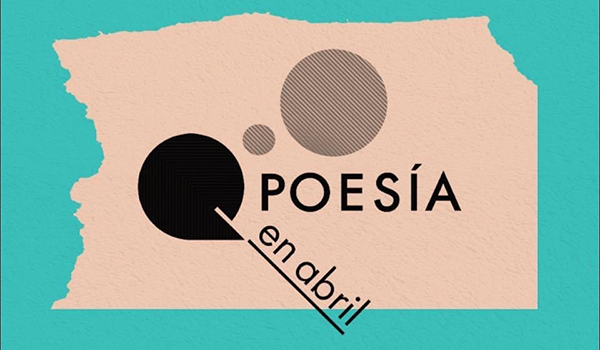 Editor's note: In recognition that “Poesía en Abril” is a Spanish poetry festival founded at DePaul 16 years ago, Newsline decided to share this story on the origins of the festival and information about this year's event in both English and Spanish for the first time. The Spanish translation of this story can be read here.
Editor's note: In recognition that “Poesía en Abril” is a Spanish poetry festival founded at DePaul 16 years ago, Newsline decided to share this story on the origins of the festival and information about this year's event in both English and Spanish for the first time. The Spanish translation of this story can be read here.
Many Chicagoans find community through their cultural heritage and art. DePaul’s 16th annual “Poesía en Abril” (“Poetry in April”) festival will bring local and global communities together for a weekend of live Spanish poetry and musical performances from Latine artists.
The festival will take place April 18-21, with an inauguration and open dialogue discussion on April 18 at DePaul’s Lincoln Park Campus. Guest poets from Puerto Rico, Mexico, Cuba, Spain, Peru, Venezuela, Bolivia and Chicago will speak throughout the four-day festival. All events are free and will feature musical guests Vivian Garcia and AlgoRitmo. There will also be literary dialogues, workshops and the announcement of the Juana Goergen Poetry Award winner. Find the full schedule
here.
“This year’s theme is ‘lazos’, which means ‘bonds’ and the links that bring us closer,” says Rocío Ferreira, associate professor of Spanish, chair of DePaul’s women’s and gender studies department and co-director of “Poesía en Abril.” “Our communities need to create bonds with different cultures and learn about their roots, history and writers because they all bring different experiences that show in their poetry and teaches something new.
“Poesía en Abril” was developed in 2008 by Juana Quinones-Goergen, DePaul emerita associate professor of modern languages, as a celebration of Chicago’s Latin American communities, culture and art. Goergen collaborated with
contratiempo, a Chicago-based organization highlighting Spanish-speaking literature, to bring her idea to life. Now, the festival also collaborates with
Instituto Cervantes de Chicago, an internal nonprofit promoting Spanish language education, and the
Poetry Foundation.
The festival’s emphasis on live Spanish-speaking poetry helps strengthen such bonds, allowing writers from different Latin American backgrounds to express themselves through a common language that brings people together. Live performances enhance the intimate connections between Spanish-speaking audience members and poets as well.
“Even if a poem is breathtaking, it’s not the same as just understanding it on your own,” Ferreira says. “When you see the poet reading their poem, you appreciate the precise experience the poem comes from, and it changes your way of seeing the world. It makes you think about many subjects that you didn’t think about before and reflect on the importance of poetry and language legacies.”
Though Ferreria says interpreters are sometimes available, she encourages non-Spanish speakers to attend and use their curiosity as a catalyst for learning the language. Free writing workshops with poets also make the festival more accessible and inclusive for non-Spanish speakers or those unfamiliar with poetry.
“It’s a beautiful experience for everyone who attends the workshop,” Ferreria says. “It shows you that we all are able to do anything if we try and are guided.”
The on-campus introduction to cross-cultural poetry not only establishes the university as a hub for Spanish immersion but exposes DePaul students to new histories and stories from different countries.
The festival has featured many impressive poets over the years, including Nicaraguan writer and feminist Gioconda Belli and Chilean writer Raul Zurita, whose poetry focuses on Chile’s complex history.
“You never know which poet is going to resonate with you the most,” Ferreira says. "That's what I love about poetry. It's a wonderful opportunity to open your eyes to worlds that are often unknown and learning new things makes you grow a lot."
Emily Diaz is a student assistant for internal communications in University Communications.